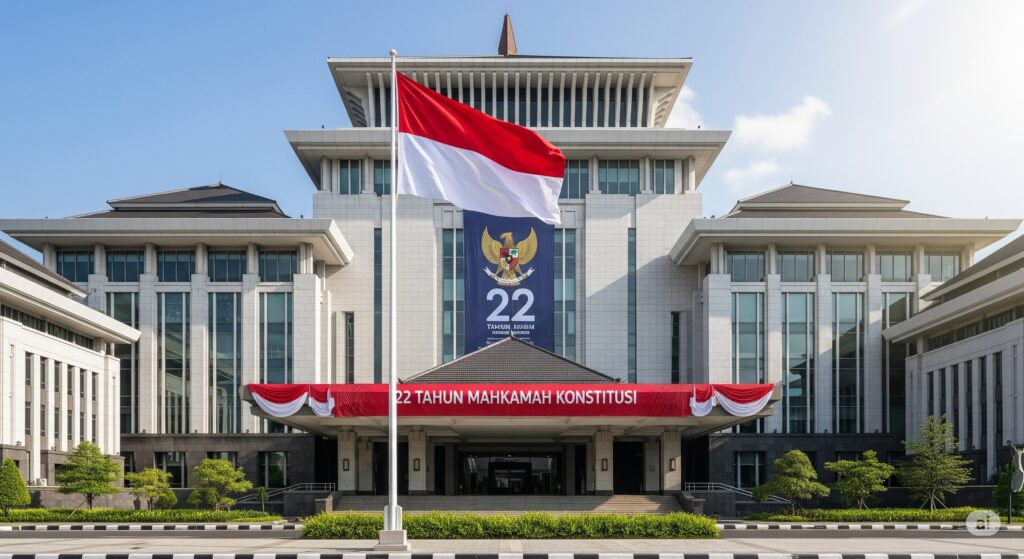The Constitutional Court (Mahkamah Konstitusi, MK) stands as one of Indonesia’s key pillars in safeguarding constitutional law. Established on August 13, 2003, the Court has played a critical role in ensuring that every law complies with the 1945 Constitution. Each year, its anniversary becomes an occasion not only to celebrate but also to evaluate its journey.
Celebrating the 22nd Anniversary (August 13, 2025)
Every year, the MK organizes ceremonies and internal events to mark its anniversary. In 2024, for example, the Court held a formal gathering in the courtyard of Building 2, attended by all justices, staff, and their families, followed by competitions and thanksgiving activities (mkri.id).
The Heated Debate: Constitutional Court Ruling No. 90/PUU-XXI/2023
In October 2023, the Court issued a controversial ruling on the age requirement for presidential and vice-presidential candidates (Article 169 letter q of the Election Law). The decision allowed candidates younger than 40 to run, provided they had served as a regional head (ugm.ac.id).
This ruling, delivered on October 16, 2023 just two days before the candidate registration period enabled Gibran Rakabuming Raka, then under 40 but serving as mayor, to enter the 2024 presidential race (jdih.rembangkab.go.id).
Mixed Public Reactions: Youth Opportunities vs. Legal Ethics
Supporters saw the ruling as an opportunity to empower younger leaders with fresh perspectives. Critics, however, questioned its timing, ethics, and potential political motives, arguing that it appeared to accommodate a specific individual, thus threatening the Court’s image of neutrality (kompasiana.com).
Procedural and Administrative Concerns
The Election Organizers Ethics Council (DKPP) also highlighted the Election Commission’s (KPU) delay in updating its regulations (PKPU) in line with the MK’s decision. The KPU maintained the original minimum age of 40 in PKPU No. 19/2023 and only revised it in PKPU No. 23/2023 after the registration period began. Ultimately, DKPP ruled that Gibran’s candidacy was valid under the MK decision, though noting administrative lapses (jdih.rembangkab.go.id).
Lessons and Recommendations for the Constitutional Court
1. Improve Internal Procedures
Major rulings should not be issued at the last minute. The Court should ensure better transparency and communication with related institutions to prevent procedural chaos.
2. Maintain Legal Credibility
When dealing with politically sensitive cases, MK must safeguard neutrality and base its rulings on strong legal reasoning—not merely broad interpretations of the “right to be elected.”
3. Engage Public and Academic Voices
Involving legal scholars, civil society, and the media in discussing significant constitutional changes can strengthen public trust.
Closing Thoughts
At 22 years old, Indonesia’s Constitutional Court remains vital to democracy. However, its recent ruling on the presidential age limit serves as a reminder that legal decisions must not only be fair but must also appear fair. Transparency, consistency, and independence are non-negotiable for an institution of its stature.





